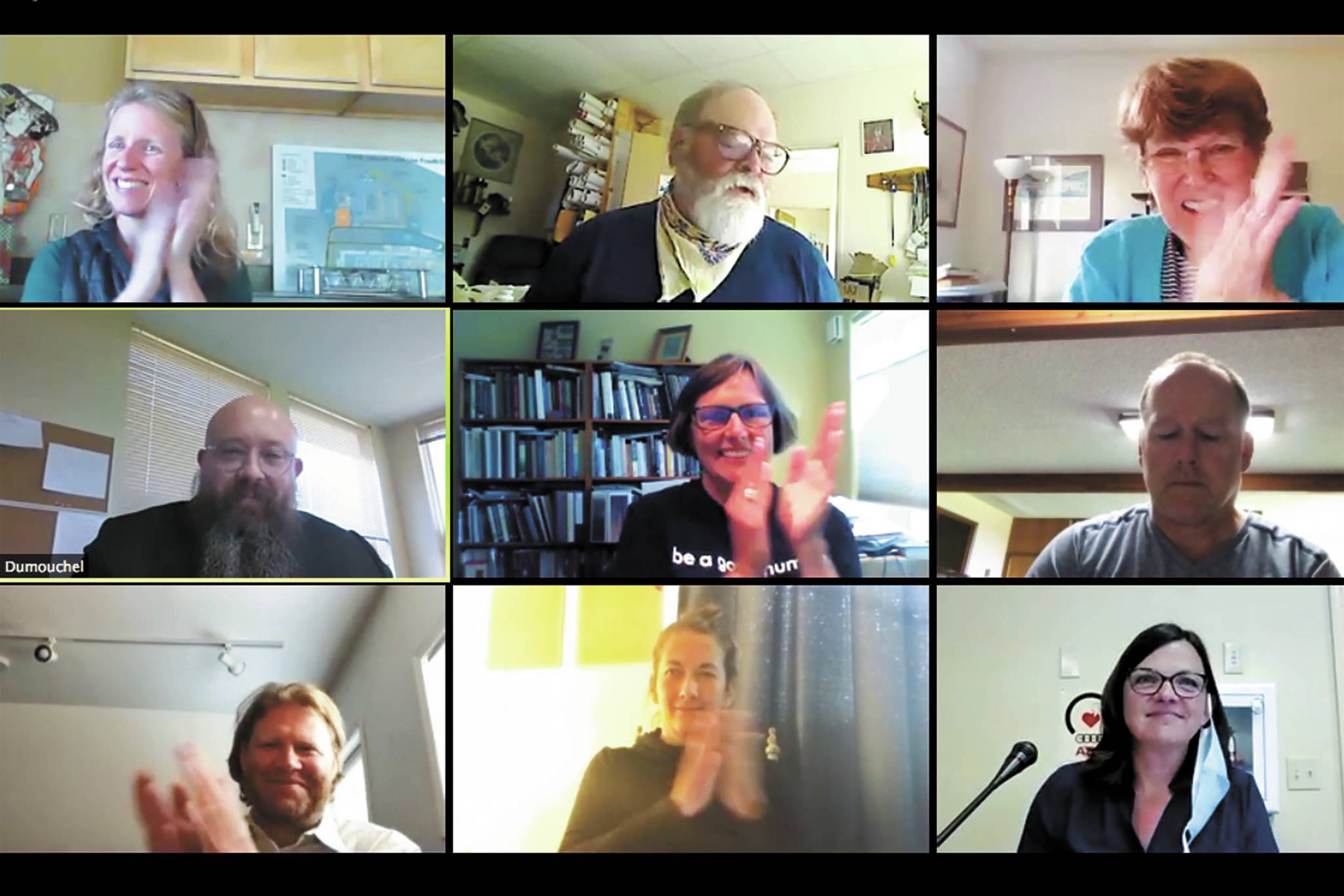Homer’s new city manager is officially on the job.
Rob Dumouchel participated in his first Homer City Council meeting as city manager on Aug. 24, and was sworn in at that same meeting.
“Congratulations and welcome aboard,” Castner said.
Dumouchel thanked the council and said everyone at the city has been warm and welcoming.
“It’s been really nice to be here,” he said. “… I’m really excited to join this team.”
Also at its Monday meeting, the council got a legal analysis from City Attorney Michael Gatti which suggested that, contrary to messaging from Gov. Mike Dunleavy’s administration, the city does not have the legal authority to institute health mandates, such as requiring residents to wear face coverings.
The question arose after the council sent a letter to Dunleavy in early July asking for guidance from the state to help set up a mitigation plan for Homer.
Dunleavy has said that he supports individual municipalities taking their own steps to implement mitigation strategies for COVID-19, but that he will not institute statewide policies on things like face coverings. However, not all municipalities in the state actually have the legal authority to implement those health mandates. Anchorage and Seward are two examples of those that do, where face covering mandates have been enacted by the local governments.
Alaska Municipal League Executive Director Nils Andreassen told Alaska Public Media in July that it seems “pretty clear” that second-class boroughs do not have the powers Dunleavy has encouraged municipalities to use on their own.
As a second-class borough, the Kenai Peninsula Borough is not endowed with health powers. Nor is the City of Homer, as a first class city.
“As a first class city, Homer does not have health powers and cannot implement a city-wide mitigation plan on our own,” a draft of the letter to Dunleavy states. “The Department of Health and Social Services has made it clear through the Reopen Alaska Responsibly process that you are willing to work with individual communities to support local mitigation needs. Homer’s City Council requests that you assign staff to consult with city staff and unified command team members … to develop a Homer-specific mitigation plan that you can issue on our behalf.”
Homer Mayor Ken Castner then reported back to the council in late July, saying he had spoken with Dunleavy in a series of teleconferences with other city mayors, and had asked whether Homer had the power to enact health mandates. According to Castner, Dunleavuy told the mayors they had the power to mandate masks.
City Attorney Michael Gatti, however, gave the council a different legal opinion after having reviewed the state and local laws that the Dunleavy administration cited. During Monday’s council meeting, Gatti said he found nothing in Homer city code, state statutes or the Alaska Constitution that actually give Homer health powers.
“There was an argument that we somehow had health powers based upon an ordinance in Title 2 of the city code,” Gatti said. “So we looked at that as well. One of the things that’s a challenge for municipalities across the state is the tension between the liberal construction of municipal powers and the limitations of those powers.”
Gatti said that under the Alaska Constitution, municipalities have liberal powers, but that they are not unlimited. His analysis for the council was that home rule municipalities, like Anchorage, have the ability to have health powers. Home rule cities and boroughs are created through charters. If a municipality gives itself health powers when writing its charter, then it would have those powers.
First and second-class municipalities do not have charters. Gatti said none of the Homer code referenced by the Dunleavy administration “expressly or even mildly grants the city specific health powers.”
He told the council that, in order to gain health powers, Homer would have to become a home rule city and write health powers into its charter. A city becomes home rule by way of a public vote. Soldotna undertook this process and became a home rule city in 2016. Homer attempted to become a home rule city in 2014, but that failed when voters rejected the first step in the process, creating a charter commission.
The city council’s next meeting is at 6 p.m. Monday, Sept. 14. Meetings are held at Homer City Hall, but most council members, city staff and the mayor participate via Zoom. For information on how to participate or give public comment, visit the city’s website at cityofhomer-ak.gov/
Reach Megan Pacer at mpacer@homernews.com.


